Scholar Voices Symposium Edition is Scholar-driven content that sparks conversations and deepens connections within the McDonnell Academy, with our partners, and across the WashU community.
McDonnell Scholars shared insightful stories during 6th McDonnell Academy International Symposium in Brisbane, Australia, a three-day event of executive sessions, workshops, panel discussions and poster sessions featuring research from current McDonnell Scholars. These stories highlight perspectives that reflect the diversity, experiences, and interests of our Scholars.
Read the stories:
- “Powerful combination of excellence and experience” McDonnell Academy and UQ alum welcomes students to the symposium, Ashley Hammett
- Humanities: bringing a different—and necessary—perspective to the global issue of Food, Water and Sustainability, Min (Margeret) Wang
- Mental health: growing global knowledge means more support for people, Lei Chen
- Career building and leadership advice for PhD and graduate students around the world, Andrea Balassy and Yi-Ling Lin
- Individual Account Pension Systems: The Dangers of an Unfulfilled Promise, Rodrigo Moser
- Raising awareness about challenges like climate change can be just as important as making laws, Lei Chen
- Report from the McDonnell Academy Presidents’ Forum, Melody Yunzi Li
- What is wrong with leadership classes?, Gulcan Yayla
- McDonnell Symposium highlights needs, benefits of cooperation around energy and the environment, Hsun-Chia Hsu
- Vital issues facing industrialized nations offer opportunities for collaboration beyond technology, Andrea Balassy and Yi-Ling Lin
- Three exciting minutes bring global solutions to life, Melody Yunzi Li and Hsun-Chia Hsu
“Powerful combination of excellence and experience” McDonnell Academy and UQ alum welcomes students to the symposium
September 18, 2016
by Ashley Hammett, University of Queensland and Washington University in St. Louis alum

G’day! I graduated from the Washington University School of Law in May 2016, where I had the good fortune of being a McDonnell Academy Scholar. I will be working as an Associate with Shearman & Sterling in New York City this Fall. It is my pleasure to welcome you all to Brisbane for the McDonnell International Scholars Academy Symposium.
I first started at University of Queensland in 2006, where I studied Law, French and International Relations. UQ has a superb reputation for research, and students are offered many opportunities to work with Professors of a high caliber in various fields of specialty. I had the good fortune of doing extensive research and writing for professors who specialize in issues facing the Aboriginal community in the criminal justice system, and human trafficking.
UQ also has a thriving student community, and I became involved with a number of university groups and societies, including Oxfam and ANTaR, a group that advocates for Aboriginal rights before government entities. I also benefitted from UQ’s terrific legal clinic program, where students work can help disadvantaged members of the community, such as those facing homelessness. This was a great way for students to give back to the community and learn about how law impacts society, while gaining valuable experience and forging important connections with Brisbane’s legal fraternity.
It is this powerful combination of excellence in academia and experience with practical issues facing the community, something shared by Washington University and the Academy’s many other university partners, which will make this Symposium so special for the participants. This dual approach of academia and clinical programs to address global issues will provide participants with real life examples of how scholars, academics and practitioners alike can make great strides in transnational issues in health, energy and sustainability. I am very excited to hear from such highly esteemed professionals and academics this week.
There is also plenty to explore in Brisbane after the Symposium events. The Convention Centre is located right in the middle of South Bank – Brisbane’s cultural hub. Here you will find the wonderful (and free!) Gallery of Modern Art (www.qagoma.qld.gov.au/), which features a great selection of art, cinémathèque, and an entertainment space for children. The State Library is also close by, (www.slq.qld.gov.au/) for those who need a relaxing space overlooking the river to work. In front of these buildings is a riverfront promenade and behind is Grey Street and Fish Lane, each with many restaurants, cafes and bars to entertain you.
A handful of attractions are just a short CityCat ferry ride away: New Farm Park (www.newfarmpark.com.au/) and the Brisbane City botanical gardens (www.visitbrisbane.com.au/the-city/things-to-do/arts-and-entertainment/heritage-and-architecture/city-botanic-gardens?sc_lang=en-au). The suburb of New Farm is full of wonderful cafes and restaurants, particularly around the James Street area (http://www.jamesst.com.au/james-st-market/). You can also cross the bridge from South Bank into the city, where there is a great fruit and vegetable market every Wednesday night, and many shops and restaurants.
For those with a car, the Mt Cootha botanical gardens and mountain top café are well worth the short trip (https://www.brisbane.qld.gov.au/facilities-recreation/parks-venues/parks/brisbane-botanic-gardens-mount-coot-tha). You can also park and hike through bushland, for an inner-city exposure to Australian fauna and flora. And of course, if you want to get your photo taken with a koala, Lone Pine Koala Sanctuary has you sorted (www.koala.net/).
UQ itself is a beautiful university, with historic limestone buildings as well as an impressive array of high-tech new buildings. For those who want to stretch their legs at UQ, there is a wonderful river walk, playing fields and a swimming pool on the north end of campus, and a beautiful lake area on the south end. There are many excellent cafes and restaurants, including Merlos, Pizza Caffe, and Wordsmiths, as well as the Red Room.
I am incredibly excited to be back at UQ, and to be able to share this special place with all those attending the Symposium. I hope that your time offers many opportunities to learn, discuss complex ideas, connect with inspiring people from all over the world, and enjoy a bit of Queensland sunshine!
Humanities: bringing a different—and necessary—perspective to the global issue of Food, Water and Sustainability
September 23, 2016

By Min (Margaret) Wang, McDonnell Scholar from Arts & Sciences: Chinese and Comparative Literature (PhD)
I was very lucky and honored to participate in the 3MT—Three Minute Thesis— competition on the McDonnell Academy Symposium theme of Food, Water, and Sustainability. As the only presenter from the Humanities, I was indeed worried but at the same time excited to bring a different perspective to the discussion.

I spoke about world literature on the problem of unsustainable development and expressed my wish that literature could perform a more active role in addressing these global challenges.
With 70 percent of the symposium attendees being from natural science and perhaps 29 percent from social science, I knew that the small percentage of people from the Humanities needed to count on the open-mindedness of the other attendees.
I was happy and relieved to receive encouragement and some very interesting comments on my presentation from several scientists. It is an optimistic sign that people began to see the possibility of cooperation across the boundary between the Humanities and the Sciences.
Literature can hardly contribute directly to increasing food production or establishing new models of sustainable development. Yet we have the power of heart-wrenching tears and imagination that knows no limit.
Literature is able to reach audiences from diverse backgrounds, present the fruits of scientific research in an approachable way, and offer inspirations for new scientific explorations.
Nevertheless, having read a bunch of literary works that attempted, but failed in realizing these possibilities, I understand that literature cannot rely only on the open-mindedness of scientists to claim its place in addressing these global challenges.
Many writers, in terms of understanding these global problems, are still staying on a superficial level, mainly because of the limit of their knowledge.
It is not easy to for writers and literary scholars to cross the disciplinary boundaries and learn science, but efforts must be made for the sake of progress.
The McDonnell Symposium is an excellent opportunity, especially for scholars from the Humanities, to broaden our horizons, reflect on these global challenges, and think seriously about what we can do to make a real presence. It is actually not difficult to draw connections between the Humanities and the Sciences if we get to know each other more closely and break away with the stereotypical images of other disciplines in our mind.
For instance, I considered scientific research as rather specialized in each individual field while literature as more inclusive in its perspective into social issues. Yet during the session on Food, water, and sustainability, I found the strong repercussion of literature’s inclusiveness in the comprehensive approach that more and more scientists have adopted to address the concerns about food and sustainability. What the scientists are doing now is not merely doing experiments in their labs. They are going into different realms of the society and seeking for cooperation among academic, governmental, as well as private institutions.
It is indeed time for scholars and students of the Humanities to go out of our library, join our colleagues of Sciences, and contribute to solving global problems that are related with every one of us.
Mental health: growing global knowledge means more support for people
September 23, 2016
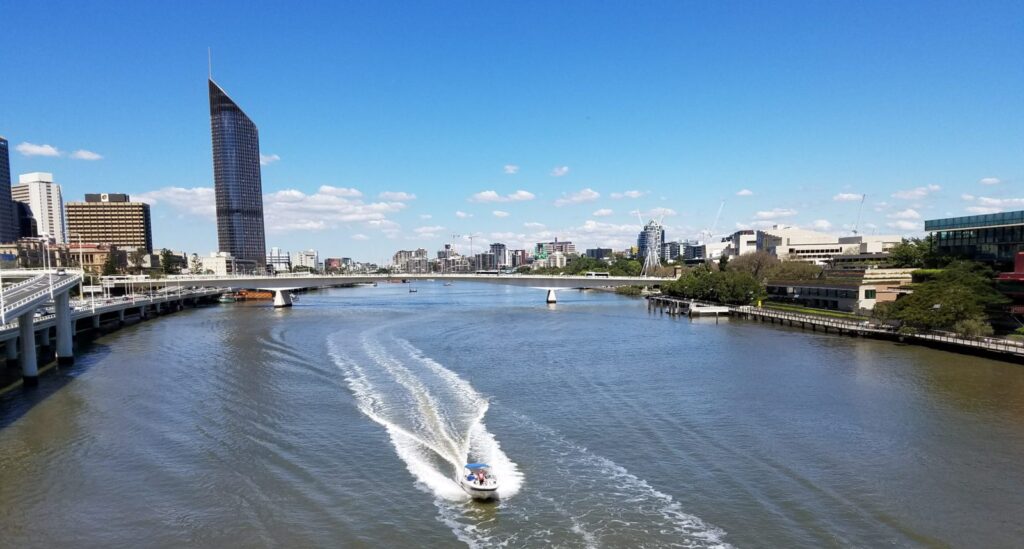
By Lei Chen, McDonnell Scholar from The Graduate School: DBBS-Human & Statistical Genetics (PhD)
When I was doing my undergraduate research on autism in China, I met many people with a misunderstanding of mental disorders. Rather than regarding it as a disease or illness, people tend to think that the patients have a personality flaw making them more vulnerable than “ordinary people.”

This leaves patients without much-needed care and understanding. The patients desperately need the support from the world — fighting against mental diseases is not merely an inner struggle for one individual, it can be a battle for a whole family, especially for two groups of patients, the young and the old.
Taking care of the elder patient group can be even more difficult: the patient can be suffering from the decline of organ functions as well as cognitive capabilities. Also, the family members who provide the care are usually much younger than the patient, which can be a challenge for empathy.
As a genomic researcher in the biomedical field, I usually think in a more “scientific” way, potentially overlooking the humanity part of the disease.
Through the knowledge shared in the Aging & Public Health session of the McDonnell International Scholars Academy Symposium, I started to think more about the daily impact of our research for family and society, an important motivation for me.
During the session, Prof. Harvey Whiteford from The University of Queensland talked about the global disease burden of mental and neurological disorders and revealed the fact that in the last few years the influence of those diseases has rapidly increased.
Researchers also spoke about substance use in aging population and anxiety in aging groups. I was most impressed by the talk given by Prof. Vivian Lou from the University of Hong Kong, who discussed the needs to supports family care of mental illness.
It’s a great pleasure for me to know that the significance of mental health has been getting more and more attention and people from all over the world have started to make attempts at solving this problem.
Career building and leadership advice for PhD and graduate students around the world
September 23, 2016
By McDonnell Scholars Andrea Balassy and Yi-Ling Lin
“There is no such thing as a career plan. A successful career is about making the right decisions because the enemy of a great opportunity is a good opportunity”
“Your brand is defined by how you act not what you say.”
“The best way to build strong enduring networks is to give to your network, not take. The more you give, the more you’ll get back…usually in strange and mysterious ways which is what makes a career so interesting”
–Dr. Edwin Trevor-Roberts, Chief Executive Officer of Trevor-Roberts, a leading careers consultancy
These are just some of the takeaways from the skills development workshop for graduate students delivered by Dr. Trevor-Roberts during the McDonnell International Scholars Academy Symposium in Brisbane.
Dr. Trevor-Roberts offered some practical tips for building our brands as PhD candidates:
- Manage one or two social media platforms well, such as LinkedIn or Academia.edu, because social media has become one of the main sources that our future colleagues will use to learn about us before actually meeting us in person.
- Write down positioning statements and capabilities to help construct our career map and future plans. Writing is important, because one tends to follow and achieve one’s goal when there is something written down, according to psychological research.
- Think about what we can give to others, in order to build up our networks. This pointed out the importance of building up trust among peoples, and we think it is more important to enlarge this to “what we can give back to the society, and make it a better place while building up our own brand.”

These tips are especially important as the academic job market is in a transitional period, in terms of getting a job. Our mentors and professors found their jobs through traditional ways, and they are still using similar methods to look and search for their new and younger colleagues nowadays. However, more and more younger scholars build up connections and even finds their jobs through online medias, making the online networks even more important.
Developing leadership skills
An important part of making our brand successful is to develop a “We” oriented leadership style.
Alex Haslam, Professor of Social and Organizational Psychology at The University of Queensland, discussed the role of the group on successful leadership styles.

He compared the general approach that has a tendency to concentrate on “I”, an individual, abstracted, distant type to “We”, a grounded, group oriented way of leading. “We can only be led if there is a We to lead.”
There are different worldview strategies that a leader needs to apply for certain projects and groups. These strategies involve a given knowledge about vision, communication, seeing others and oneself, adapting, assigning activities, seeing the project from a logical point of view, etc. All of these capabilities can be grouped in three main areas: vision, human, and rational leadership 1.
Although these categories are somewhat formulaic, leaders are considered to be successful if they have skills, demonstrate their abilities, and inspire and appreciate their followers. A good leader is able to engage its group in a meaningful way, hold them together and give a sense of direction.
Haslam proposed a new model of leadership identity that incorporates three main challenges: reflecting, representing and realizing.
In our opinion, the most thought-provoking questions on leadership are how to change perception, achieve charisma, and maintain credibility. Many people think these are fixed properties.
Carl Gustav Jung, Swiss psychiatrist and psychotherapist, proposed that human nature and personality style can be predicted and classified. Everyone has preferences and styles, which may come from childhood or form during our life impacted by friends and colleagues. But what about timing or cultural influences? Over time the response from followers can alter, therefore integrating the different needs coming from the group in order to fulfill the expectations is essential for success and defines appreciation.
We hope that persistence and determination are always rewarded regardless of nationality or religion. However, we need to realize that the goals and the journey to achieve them are always context and environment specific and making the best decisions embedding the above mention factors can truly reveal who can be widely recognized as a good leader.
[1] Thomas A. Browdy, Topics in Project Management (2010)
Individual Account Pension Systems: The Dangers of an Unfulfilled Promise
September 24, 2016

by Rodrigo Moser, McDonnell Scholar from Olin Business School: Finance (PhD)
During the McDonnell International Scholars Academy symposium session on “Asset Building for Retirement Security,” we were presented with the examples of the Australian and Singaporean social security systems. Even though both systems are highly praised, I was surprised to realize that the discussion offered a counterintuitive dynamic: While

Australia was optimistic about the shift towards individual accounts and a lower fiscal burden, the presentation regarding the case of Singapore –a highly praised social security system– focused on the problems of lack of transparency and consistency in the public policies of the country across time. It seemed like there existed some consensus that countries should be moving towards the individual account system (in any of its many flavors) given the current situation of higher longevity and decreasing birth rates.
But there is one key aspect of the discussion and the implementation of this new system that was not emphasized enough. That is, the role of expectations. When presenting a system like this to a country, the public usually cares about one particular variable: How large is my pension going to be?
An Individual Account Pension System sets the final pension as a percentage of the salary each individual received before retirement (called pension replacement rates). In particular, the Australian superannuation system is expected to achieve a replacement rate of 65% by 2050. And this is indeed very promising. But what if it doesn’t?
One of the characteristics of this system, contrary to what happens in a government-funded retirement scheme, is that the true replacement rate will only be revealed after 30-40 years of its introduction (once the first young beneficiaries retire). At that moment, if the initial promise is not met and pensions turn out to be too low, this will cause a great deal of social unrest and put pressure on the fiscal budget (the very situation this system is trying to avoid).
Achieving high replacement rates is intimately tied to a formal and efficient labor market. If people stop contributing to their funds for extensive periods of time (either because they are self-employed, unemployed or work in the informal sector), their accrued wealth will be dramatically diminished.
While admittedly Australia shows low unemployment rates and little difference between male and female rates, this is not the case in many countries, especially in the developing world. Hence, transparency about the inherent risks of this type of pension system, as well as acknowledging that the government will probably have to step up to provide minimum pensions is key. This will anchor expectations and provide a more accurate cost-benefit analysis, which will reduce the likelihood that moving towards this system will turn out to create a future liability.
Raising awareness about challenges like climate change can be just as important as making laws
September 27, 2016

By Lei Chen, McDonnell Scholar in The Graduate School: DBBS-Human & Statistical Genetics (PhD)
I was in my fourth year of college when Beijing hosted the 22nd APEC (Asia-Pacific Economic Cooperation) CEO Summit in November 2014. The air environment was terrible through the year, but during APEC, citizens in Beijing inhaled fresh air without “smog” (an air pollution mix of smoke and fog that is very common in the biggest Chinese cities in recent years), and the whole city was embraced by an edgeless blue sky, which was called as “APEC blue.”

Unfortunately, right after the event, depressing air pollution came back quickly and became even more severe. The reason: the government shut down all factories within or near the city for several months in order to prepare for the Summit, and after APEC those factories returned to work and increased daily production to compensate the economic loss during APEC.
In the Vulnerable and in Crisis Panel Session of the McDonnell International Scholars Academy Symposium, Prof. Xin Yang from Fudan addressed the impact of climate change on China, and proposed three priorities in future: reduction of GHG emissions, more interdisciplinary research, and climate change adaptation.
He also emphasized that there should be a transition from “top-down” management to a social learning process. This point stuck with me and made me think of the vulnerable “APEC blue” sky.
Rather than just making laws and demands for organizations and individuals to make changes, the leaders of developing countries might have a more crucial task — to enhance the public awareness of the environmental crisis the world is facing, and to provide alternative solutions for industry, so the factories will be much more supportive about changes and policy, without unbearable sacrifice of profits.
Although it is not directly related to my research area, it’s personally a great inspiration that, in the context of today’s society, where there’s both rapid changes and higher demands of democracy and human rights, big decisions like those related to climate change and the environment could and should start with a negotiation with the people with the aim of becoming a common desire for the people.
Report from the McDonnell Academy Presidents’ Forum
September 28, 2016
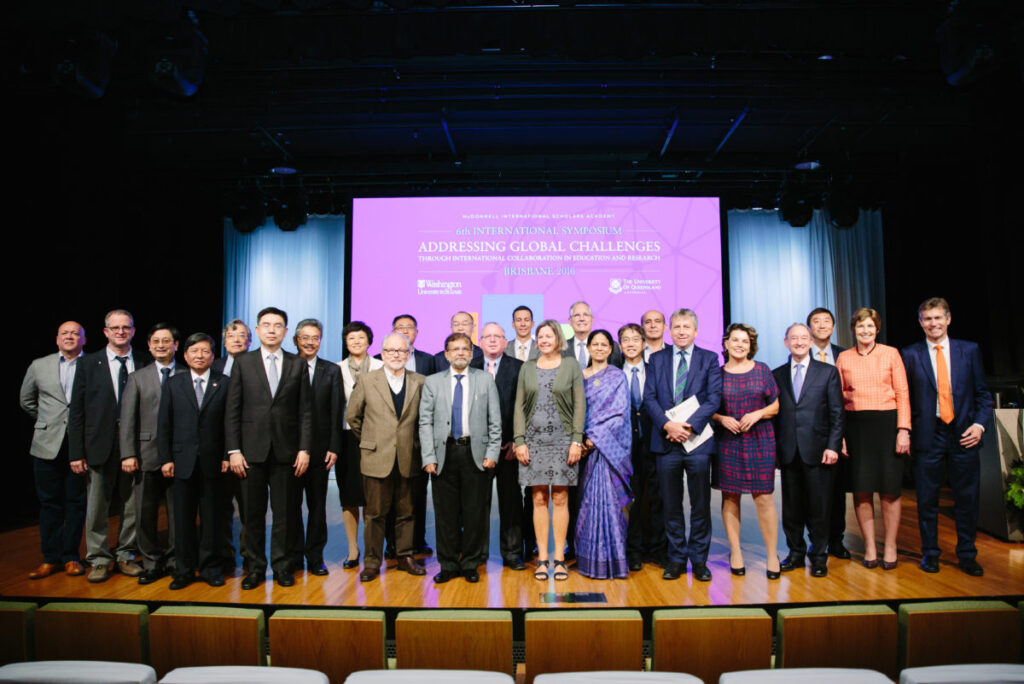
By Melody Yunzi Li, McDonnell Scholar from Arts & Sciences: Comparative Literature (PhD) Yunzi (Melody) Li
Yunzi (Melody) Li
One of the coolest things about being a McDonnell scholar is to have close-up contact and connection with institutional leaders, presidents, provosts, and vice-chancellors of the universities.
The McDonnell International Scholars Academy symposium not only allows students to interact with professors and school leaders from their institutions, but also gives us a chance to know more about the administrative functioning of the Academy partners. The presidents’ forum at the symposium gave us such a chance to know more about how the universities function.
Presidents answered questions regarding the trends of research, the role of the university in pushing forward critical research and what the university would do to equip graduate students with global leadership abilities.
The president from Chulalongkorn University, Bundhit Eua-arporn said that a University’s main task is to prepare human capital to be responsible for society, to the region and global arena. The trends discussed in the symposium, including energy, food, water, environment, health would be the key trends in research in his mind. And he aims to prepare students with broader knowledge in order to deal with the challenges ahead of us.
The vice chancellor from the University of Hong Kong, Peter William Mathieson, advised that the key to dealing with the current challenges is to think outside the box, and mentioned an example of the flushing salt water in Hong Kong. He feels the trend of research right now focuses on social sciences and engineering. He brought up an interesting change in demographics in aging population—that the lack of 18-year olds right now in HK causes universities to compete for students.
The president from Seoul National University, Nak-In Sung, emphasized that students have to have passion and compassion.
The vice-chancellor from the University of Queensland, Peter Høj, said the role of university is to engage with democracy, create information and allow individual departments to develop collaboration.
This symposium is the microcosm of what the universities set goals for and strive to develop, and I hope it will continue to move forward.
What is wrong with leadership classes?
September 28, 2016
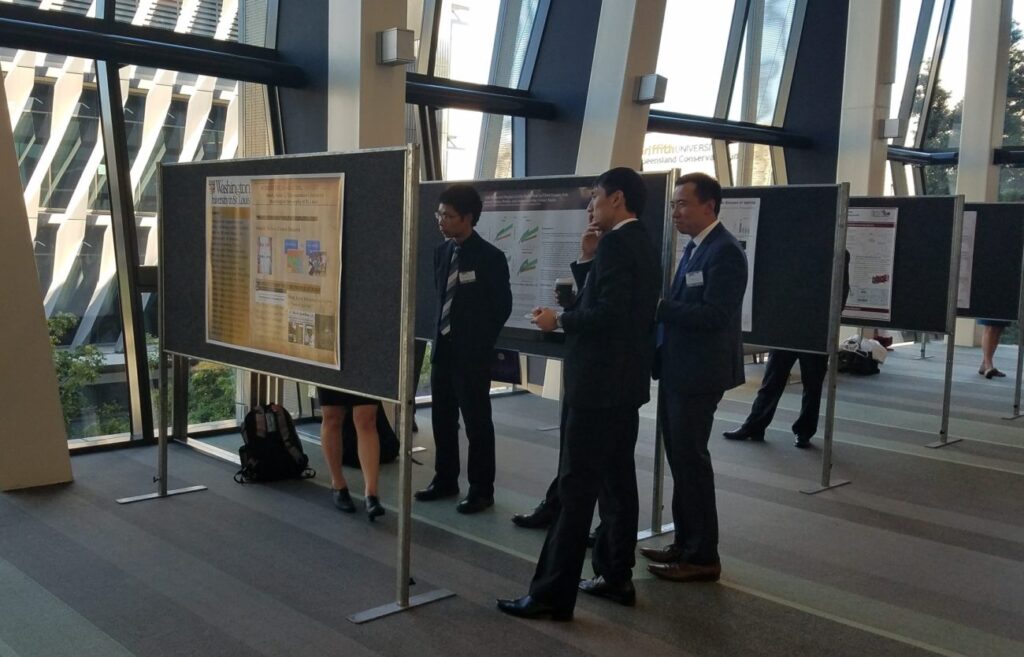
By Gulcan Yayla, McDonnell Scholar from the Olin Business School: Business Administration (MBA)
“Forget about the things you learned in leadership classes. They will be more destructive to your career than being helpful.”
When Alex Haslam, professor of psychology and ARC Laureate Fellow at the University of Queensland, started his McDonnell International Scholars Academy symposium workshop by saying this, I knew that something I felt but could not understand or explain by myself was going to be uncovered by him. In his talk, he explained where the destructiveness of leadership classes come from and what kind of alternative understanding we need.

The mainstream leadership concept focuses on the individual leader’s skills instead of the group’s values. We are persuaded that achieving organizational goals totally depends on the leader’s skills, there is a strong emphasis on “I-ness” instead of “We-ness”. The leader becomes a figure that tries to isolate herself/himself from the group by having superior skills, by being different, instead of developing a sense of commonality with the people around her/him. In leadership classes, we take sophisticated tests to measure our skills and always hear good things about ourselves.
However, the reality is, leadership is never just about leaders; it is mostly about followers. It is not about making yourself different than others, it is about creating a sense of commonality with people around you. If the leader is not able to create a shared group identity in the group to mobilize and influence others, there is no leadership that we can talk about.
This mobilization process is a group process rather than an individual’s success. Because if there is no shared identity in the group, it is very hard to mobilize a group of people towards a goal. Apart from enhancing a shared identity, a leader’s role is to help the group members become healthier individuals instead of pushing them into competition with each other. He explains the theory (Social Identity Approach) behind these views in the book “The New Psychology of Leadership: Identity, Influence and Power.”
Now imagine millions of unhappy people at their workplaces, being forced to have all the qualities of a single “super leader” instead of expressing their individual values, incentivized to compete for having the “best skills” among their team and “beating others” in the competition instead of contributing to a collective learning. I know from my Y-generation friends that this work environment does not work for us anymore, so we are blamed by our managers and families for being different, not loyal, and having a strong desire to leave the big institutions we are in. In reality, though, all we need is a different understanding of leadership from our leaders. As the new generation of future leaders, including the McDonnell Academy Scholars, I hope that we can become good representatives of this new leadership philosophy.
McDonnell Symposium highlights needs, benefits of cooperation around energy and the environment
September 29, 2016

By Hsun-Chia Hsu, a McDonnell Scholar from the School of Engineering & Applied Science: Biomedical Engineering (PhD)
“The future is today’s dream,” said Prof. Telma Franco from Brazil’s State University of Campinas as she succinctly described the motivation and purpose behind the McDonnell International Scholars Academy symposium on addressing global challenges.

Humanity is at a point where we need to make plans to deal with global challenges like energy and the environment from all perspectives in order to live in this planet for the next century with fair enough living quality.
According to the data presented during the McDonnell symposium, urbanization is a big trend around the world, and the energy consumption is increasing continuously, 66% of energy production is drained by cities, and the world is going to need 15 TW/year in the next 10 years. Out of this amount, 66 % will be consumed by the Organisation for Economic Co-operation and Development countries, which gives these countries more responsibility to develop renewable energy, low-contamination, and low-CO2-emission technologies to alleviate the predicted 3oC global warming after 2025.
The energy and environment part of the McDonnell symposium consisted of 3 panel sessions as well as two workshops on the deployment of solar energy panels. In the first panel session, discussion was focused on the review of energy production and efficiency of all major energy producing mechanisms. The progress on new clean energy sources such as geothermal and wind were also reviewed. The controversial future of nuclear power generation was also brought up in the session.
Researchers also discussed the development of solar energy panel and its global deployment. It was most interesting to note that solar energy generation, compared to other mechanisms, requires more international cooperation because different geographical conditions on the earth limit the speed of development of solar energy technologies.
The last panel session was an open debate on whether we should put more resources on pushing the development of renewable energy technologies or more on making better strategies to reduce the energy consumption based on today’s status. From the debate session, we could see how eager students want to solve the energy and environment issues. Not just developing new technologies, but considering energy consumption taxes, the social responsibilities of big corporations, the role of universities on this issue.
The solar panel workshop summarizes the work done by different partner universities over the past 2 years and also the applications of MAGEEP international cooperation platform.
In summary, this symposium provided a good platform of knowledge from a beginner level through the cutting edge research. It promotes cooperation between partner universities and educated students to know and face these global challenging that are happening in this young generation.
Vital issues facing industrialized nations offer opportunities for collaboration beyond technology
September 29, 2016
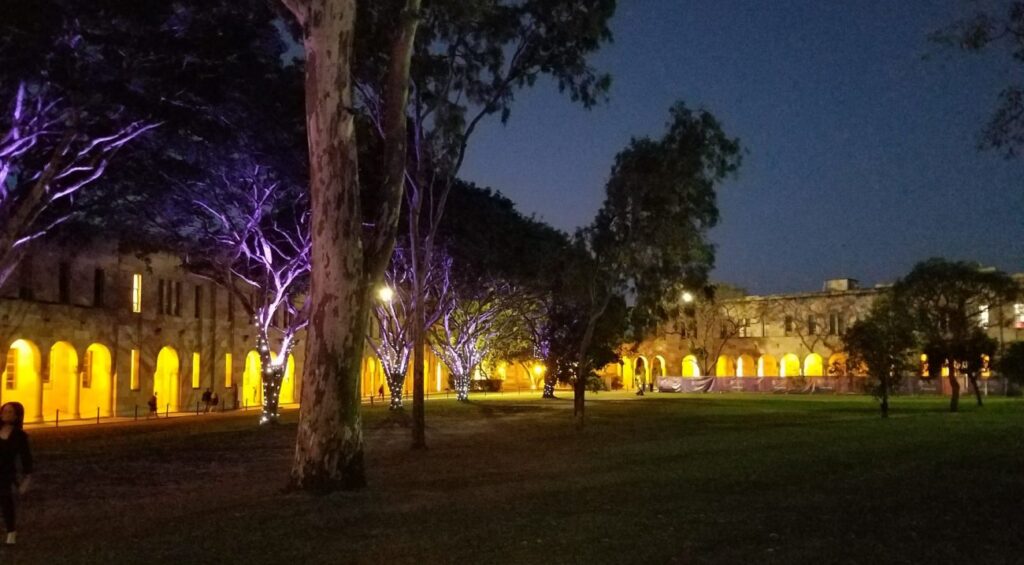
By Andrea Balassy, McDonnell Scholar from the School of Engineering & Applied Science: Energy, Environmental & Chemical Engineering (PhD) and Yi-Ling Lin, McDonnell Scholar from Arts & Sciences: Anthropology (PhD)
In the McDonnell International Scholars Academy symposium joint session on industrialized nations, several related issues were addressed, such as environmental pollution, aging, as well as water and food security.

Benjamin A. Suarez-Isla, director of the Transdisciplinary Network on Aging at the University of Chile, presented certain challenges related to aging due to low birth rates and general improvement of living conditions. According to the measurement made by ECLAC (Economic Commission for Latin America and the Caribbean) and CELADE (Latin American and Caribbean Demographic Centre), Chile is the third “super-aging” country in the region after Uruguay and Argentina.
One of the crucial problems associated with aging is the effect on the pension system. Pension replacement rates are highly dependent on efficient labor market, as McDonnell Scholar Rodrigo Moser highlighted it in his recent report on Individual Account Pension Systems. Extensive periods of unemployment are a key factor that are hard to avoid and can be unexpected.
As an example, in 2010, 33 men got stuck in a mine for 69 days in Copiapo, Chile. Their story was immortalized in a Hollywood movie (The 33) starring Antonio Banderas – but not all of them have a real-life happy ending. Despite of the fame they had after some of them travelled around the world, they had to face the reality: post-traumatic stress and no job. Leonardo Farkas, a Chilean mining entrepreneur, offered them job beside some $7000 gift for each of them, but most of them are unable to work underground as a result of their psychological issues.
Jose Henriquez, 55 when rescued, toured UK and US and joined President Barack Obama as an honored guest at the National Prayer Breakfast. However, Victor Zamora, who was only 33 at that time, has to live on a small government pension, and struggled to find work. In 2015, he has lost his house in northern Chile due to flash floods. When each of them retire, they will probably have a very different social and metal status.
The diversity of individual destinies needs to be incorporated when creating new policies, training programs and health services. An organized interdisciplinary research network could help to identify and support the people affected by life threating experiences that have long-term effects on many aspects of their life.
Volunteer programs are promising opportunities for everyone who is looking for an unforgettable experience that includes not only learning about another country but helping its people too. South America Inside1 is one example that has such program: working in a home for older adults in Santiago de Chile.
Responsibilities include supporting the nursing staff, food distribution, organizing activities and projects for seniors, daily conversations with the residents. Expanding such opportunities to university students from different countries and with different background could open up new collaborations between universities, and living and facing the challenges in these critical areas could contribute to come up with solutions for other issues addressed in the session related to water, air pollution, and health problems.
“People grow through experience if they meet life honestly and courageously.” – Eleanor Roosevelt

Dr. Wen-Jane Chen, Dean of the college of Public Health at National Taiwan University, shared his observations about food, water and air security in Taiwan. One idea that is often forgotten or ignored is – food security is not just important to our physical health; it is also vital to psychological health of the public in a society.
In the past five years, several incidents related to food security have reduced the trust of the public for the Taiwanese government. This lack of trust could lead to an unstable society. Therefore, the government of Taiwan and National Taiwan University Public Health College are working on setting up regulations for food and developing online reporting system to collect related data from the public.
It is important to pay attention to social impacts caused by food security, because food is such a basic element of our life. Besides, together with all the other environment issues we are facing, very often we tend to emphasize contributions of education on developing new technology. However, it looks like the original function of higher education – developing doctors of philosophy is forgotten, especially the philosophy part. We don’t mean to argue that we don’t need those new technologies. But, aside from developing new technologies to maintain comfort of our life, shouldn’t we also consider our lifestyles as part of the overall life philosophy?
Three exciting minutes bring global solutions to life
September 30, 2016
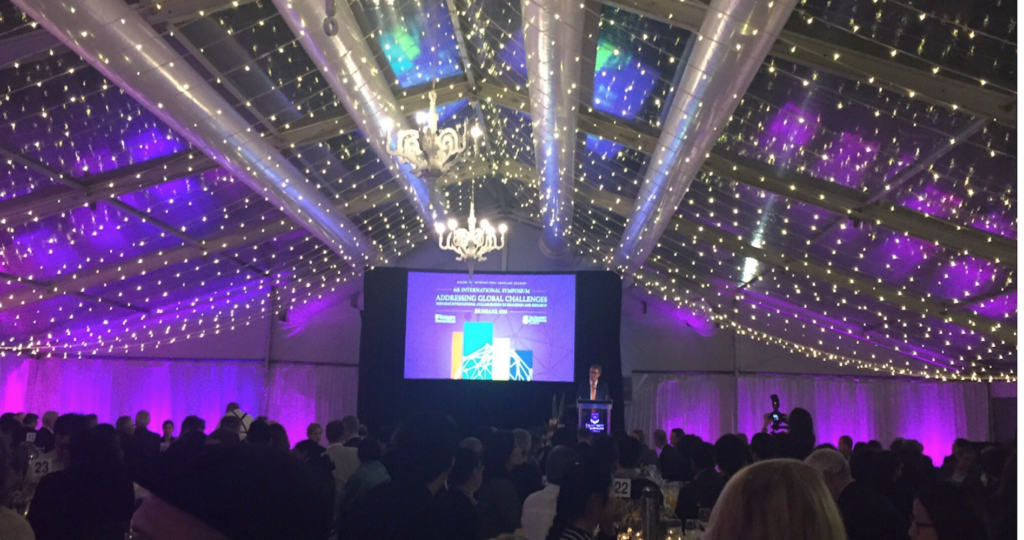
By Melody Yunzi Li, McDonnell Scholar from Arts & Sciences: Comparative Literature (PhD) and Hsun-Chia Hsu, McDonnell Scholar from the School of Engineering & Applied Science: Biomedical Engineering (PhD)
“Are you going to the 3MT?” “Who do you think will win?” For graduate students, 3MT is one of the most exciting components of the McDonnell International Scholars Academy symposium.
Created by The University of Queensland in 2008, 3MT competitions challenge PhD students to deliver their thesis in three minutes with only one PowerPoint slide. This competition helps students generate a succinct, convincing argument for not only colleagues in their own field, but for people across disciplines or any generic audience. The McDonnell Symposium 3MT finalists did this beautifully and proved the success of the competition.
The McDonnell Symposium 3MT competition focused on the key themes of the meeting: energy and environment; food, water and sustainability; population aging and global public health. Five topic area finalists competed during the day and the winners were announced at the end of the evening.
Aging and Public Health
In the population aging & public health session, scholars tackled the issues of breast cancer, international human trafficking, after-retirement life, early-stage health care. Cal J. Halvorsen from Washington university in St. Louis was the winner of this session with his clear and fluent expression of his research on redesigning work for longer lives.
Food, Water, and Sustainability
Interestingly, competitors in this topic demonstrated the close linkage of this theme to two other themes—environment and global health.
Winner Weng Chan Vong from the National University of Singapore, described a new way to use Soybean Waste
Energy and the Environment
In the energy and environment session, scholars presented their innovative research on improvement of the extraction of methane hydrates, the developments of business and energy technology for the poor, the different impacts of a low-cost technology for the poor, and a new application of activated carbon for improving the air pollution in China.
Winner Avigail Landman from Technion-Israel Institute of Technology stood out with her creative new method on water electrolysis.